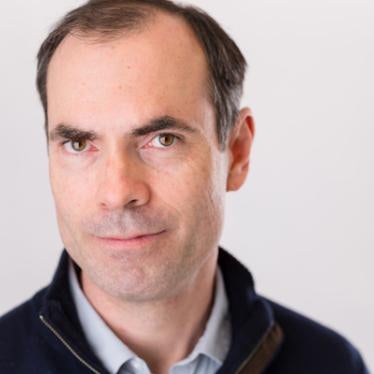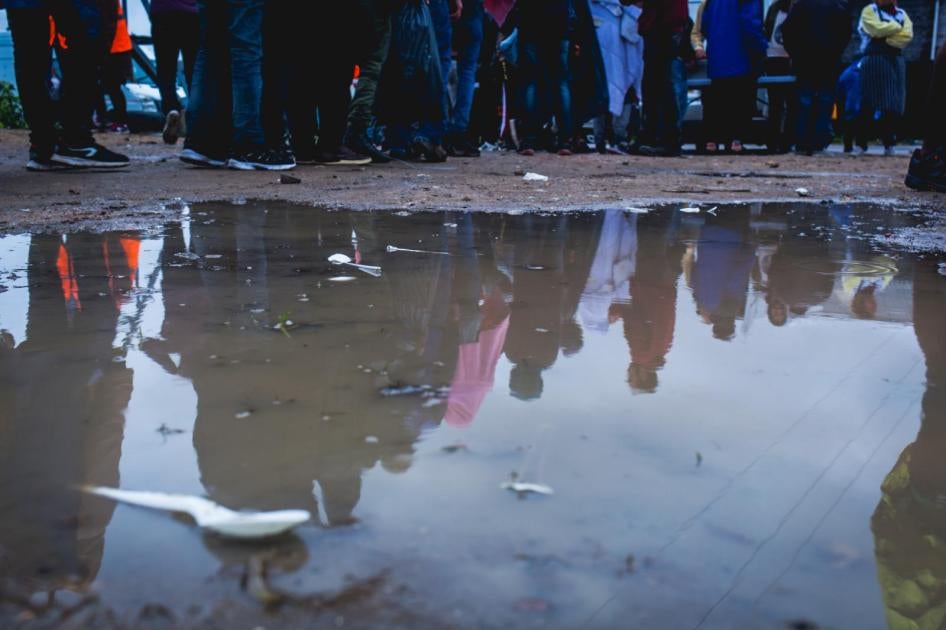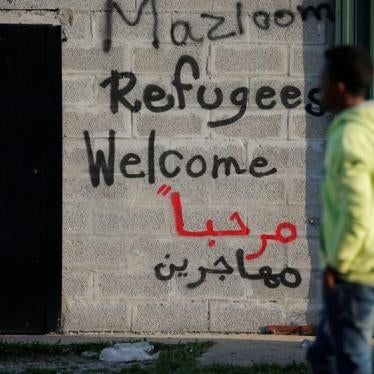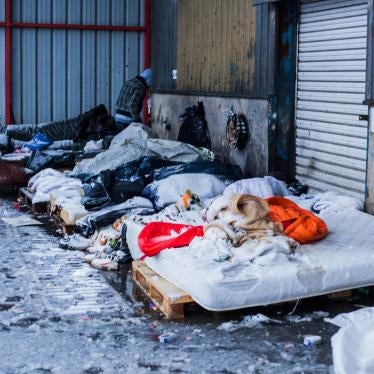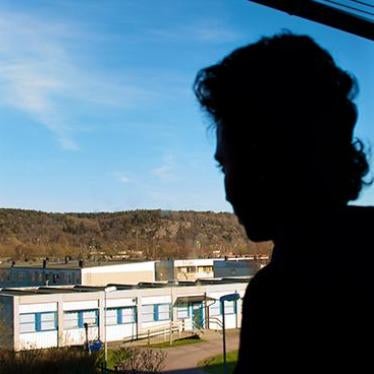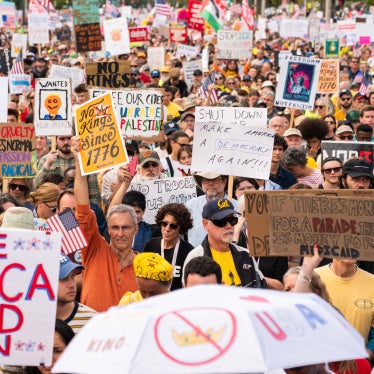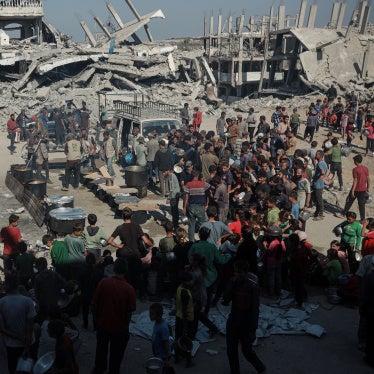It’s the middle of winter and six hundred or more asylum seekers and migrants, including more than 100 unaccompanied children, remain camped out in Calais in increasingly dire conditions, exposed to the elements and faced with routine police harassment and frequent violence. Many are desperate to join family and friends in the United Kingdom; others are there for lack of any better option in France.
President Emmanuel Macron finally visited on January 16 and gave a major speech in front of an audience of police officers and government officials—it was not clear that any migrants attended or were invited. He delivered a mixed message about whether the situation for migrants here—or indeed France’s leadership for the European migrant situation—is going to improve.
Just across the Channel from Dover, the northern French city of Calais was, until October 2016, the site of a sprawling, squalid shantytown that held as many as 10,000 asylum seekers and migrants, including many unaccompanied children. The camp was dismantled at the end of that month, its residents dispersed to emergency shelters across France. But many of those shelters, particularly those for children, did not deliver on their promise of access to the French asylum system and other services, and migrants rapidly returned to Calais.
On a positive note, Macron emphatically stated that police must treat migrants with humanity, that the physical violence and destruction of migrants’ property that has characterized the police response in recent months is “contrary to all principles of professional ethics” and if proven, “will be punished.”
His speech and remarks later in the day in a meeting with nongovernmental organizations, including Human Rights Watch, appear to have been informed by the groups’ reporting and recommendations.
Indeed, at one point in the meeting, Macron affirmed that his administration took seriously the report of an internal investigation corroborating our own findings in July of police abuse of migrants, calling out Interior Minister Gérard Collomb, who suggested otherwise.
In fact, the internal inquiry found “credible” evidence of police abuse against migrants in Calais.
Macron also announced that the state would take responsibility for distributions of food to migrants, a role that French authorities have until now largely left to humanitarian groups.
At the same time, Macron appeared to endorse the premise that humanitarian aid draws migrants to Calais, raising immediate questions about whether the government will effectively provide such assistance.
It’s hard to credit the notion that the limited assistance migrants receive in Calais is a significant pull factor. Many migrants flee their home countries in search of safety. Calais draws migrants because it is the closest port to the United Kingdom, the preferred destination for many, not because they receive a little food, water, and clothing while they’re in northern France. Regardless, France has a duty to meet the basic needs of those on its territory.
Alarmingly, Macron also suggested that some groups have made unfounded accusations against authorities. In such cases, he said, the state will charge and bring to justice those responsible for defamation.
That sounds like a threat. Public officials should be open to criticism. Reports of police violence should be accepted in good faith and promptly investigated. Individuals and groups shouldn’t fear that speaking out will lead to repercussions.
Elements of Macron’s broader approach to migration are also questionable. Immigration document checks at emergency shelters, authorized by the interior minister in December, run counter to Macron’s pledge to “accommodate everyone in a dignified way” and could lead people to risk freezing outdoors.
The president’s support for expedited asylum hearings runs the risk that people with well-founded but complex claims could be returned to harm.
On wider EU migration policy, we see the same paradox. Macron called on the European Union to help migrants trapped in abuse in Libya, and offered to resettle refugees evacuated from Libya to neighboring countries. But France has failed to call for an end to the arbitrary detention of migrants in Libya and has endorsed the transfer of responsibilities from the EU and nongovernmental group rescuers to the Libyan Coast Guard in the Central Mediterranean despite evidence that this approach leads to the return of migrants to abusive detention in Libya.
In advance of Macron’s Calais visit, the French newspaper L’Obs described Macron’s migration policy as “humanist discourse on the one hand and minimalist policy on the other—French hypocrisy.” In similar terms, a group of political allies wrote in Le Monde, “Your politics contradict the humanism that you preach.”
The president should heed these warnings, and take steps to ensure that his administration’s migration policies uphold the human rights principles he has repeatedly reaffirmed.
